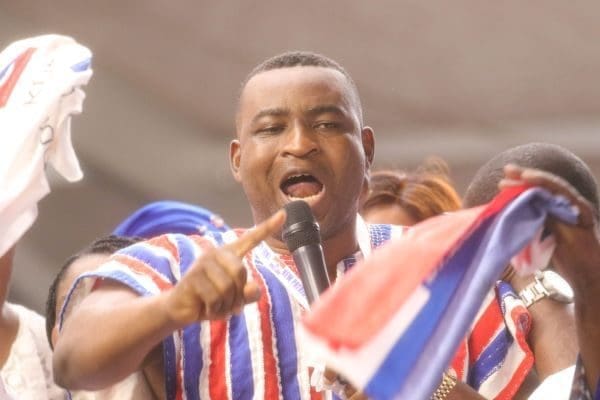
Bernard Antwi Boasiako, the Ashanti Regional Chairman of the New Patriotic Party (NPP) known widely as Chairman Wontumi, was granted GH₵1 million bail with two sureties Monday after appearing before the Criminal Investigations Department (CID) over alleged illegal mining activities.
The bail conditions have been successfully met, and Wontumi is expected to face three mining-related charges when he appears at the High Court in Accra on Tuesday, October 7, 2025. The development marks a significant escalation in the government’s intensified crackdown on illegal mining operations that have devastated portions of Ghana’s landscape and water resources.
Wontumi’s Monday appearance at Police Headquarters followed a clear ultimatum issued last Friday by Attorney General Dr. Dominic Ayine, who warned that the NPP regional chairman would be arrested if he failed to report to the CID. That warning left little room for interpretation, and Wontumi arrived accompanied by a team of lawyers for what his lead counsel described as a meeting where full cooperation would be demonstrated.
The political heavyweight’s legal troubles represent one of the most prominent cases in the current administration’s aggressive stance against galamsey, the local term for illegal small-scale mining. His arrest and bail come at a particularly sensitive time politically, given his influential position within the ruling party’s strongest regional stronghold.
Andy Appiah-Kubi, Wontumi’s lead counsel, addressed journalists before Monday’s CID engagement and made clear his client’s position. While emphasizing readiness to cooperate with investigators, Appiah-Kubi issued his own warning against any attempt to revoke Wontumi’s existing police enquiry bail, stating such action would be “vigorously resisted.”
This isn’t Wontumi’s first encounter with authorities over mining-related matters. Earlier this year in May 2025, he was granted bail with two sureties after similar questioning by the CID. During that appearance, Wontumi categorically denied involvement in illegal mining, stating he had presented his mining license to investigators to prove his operations were legitimate.
At the time, Wontumi challenged authorities to provide evidence of wrongdoing, particularly regarding allegations he had been mining in forest reserves. He acknowledged applying for a license to operate in a forest area but maintained that authorization had been properly sought through appropriate channels.
The current charges, however, appear more serious and formalized. The fact that three specific mining-related charges await him at the High Court suggests prosecutors have assembled what they believe is a substantive case. The nature of those charges remains to be disclosed when court proceedings begin Tuesday.
Wontumi’s case has attracted considerable attention partly because of the broader context surrounding illegal mining enforcement. The government has faced mounting pressure from environmental groups, traditional leaders, and concerned citizens about the pace and scope of galamsey operations that have turned rivers brown and left agricultural land scarred.
Some critics have questioned whether political considerations might influence enforcement actions, particularly against figures as prominent as regional party chairmen. The Attorney General’s public ultimatum, however, suggested a determination to proceed regardless of political sensitivities.
The Ashanti Region, where Wontumi wields considerable political influence, has itself been affected by illegal mining activities, though not to the same extent as the Western and Eastern regions where environmental devastation has been most severe. The region’s importance to the NPP’s electoral fortunes adds another layer of complexity to the case.
For Wontumi, Tuesday’s court appearance will be crucial. The specific charges he faces, the evidence prosecutors present, and how the court proceeds will all shape public perception of both his case and the government’s broader anti-galamsey campaign. His legal team’s earlier warnings about resisting bail revocation suggest they anticipate a potentially contentious process.
The GH₵1 million bail amount, while substantial, is within reach for someone of Wontumi’s business prominence. He’s known not just for his political activities but also for various business ventures, including media operations. The two sureties requirement adds an additional layer of accountability, ensuring that others with verifiable means vouch for his appearance at subsequent proceedings.
What happens in court Tuesday could set precedents for how the justice system handles high-profile illegal mining cases. If prosecutors have built a strong case backed by solid evidence, it could signal that political connections offer no immunity from galamsey prosecution. Conversely, if the case falters, critics might argue that the enforcement campaign lacks the rigor needed to combat illegal mining effectively.
The timing of this prosecution, coming as it does amid widespread public anger over galamsey’s environmental toll, means the case will be watched closely far beyond legal and political circles. Environmental advocates see such prosecutions as essential to demonstrating that no one is above the law when it comes to protecting Ghana’s natural resources.
